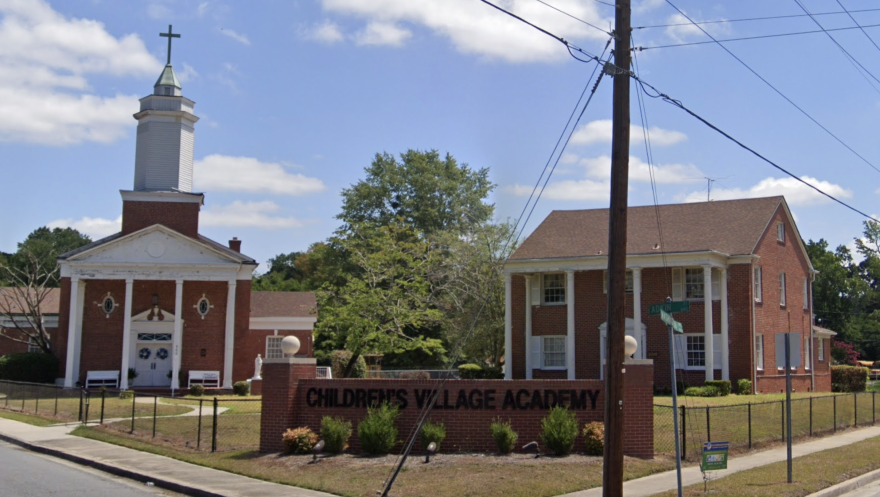The North Carolina Charter Schools Review Board voted unanimously Monday to cut off public money for one of the state’s oldest charter schools.
Children’s Village Academy in Kinston was among the first charter schools to open in 1997, when North Carolina authorized the independent public schools. It’s now a K-8 school with almost 150 students — and a looming deadline to repay $152,000 in federal grant money.
Monday’s vote means the school in eastern North Carolina must close at the end of this school year unless the state Board of Education overturns the decision.
Children’s Village first came under scrutiny for low test scores as its charter came up for renewal. But reports of financial irregularities led to a state investigation that has played out over the last several months.
Officials with the Department of Public Instruction spent almost two hours detailing questionable practices that they say date back as far as 2008 — some state officials described as “red flags for fraud, waste or abuse.” They include an improperly documented loan from a member of the Children’s Village board, other conflicts of interest and improper spending of thousands of dollars of state money. DPI agreed to waive repayment of those questioned costs, but state officials say the school must repay $152,000 from a federal grant program that supports after-school and summer academic enrichment programs.
Surprise visits reveal problems
The state found problems with attendance records and employee background checks for the school’s 2023 summer program, DPI officials said. They followed up with two surprise visits to the after-school program in April and found far fewer students than the school was reporting. Children’s Village also appeared to be providing fewer than the required hours of after-school programming, with little structure for middle school students.
“It was in my opinion free-for-all,” said Monica Park of DPI. “I saw between three and five students who were actually working on some science activities. … Most of the students chose free time outside. I also saw students on their phones.”
She told the charter board that a review of some invoices related to the federal grant “had strong red-flag indicators of fraud.”
James Harper, treasurer of the Children’s Village board, told the charter board the school planned to repay the federal money in three installments, ending in November. But Susan Brigman of DPI said the state had already extended the traditional 10-day repayment period to 30 days and had not agreed to another six months.
The deadline is Wednesday, and previous reports have indicated the school is running a deficit.
“Will you be making that full payment on May 8?” asked Bruce Friend, chair of the charter board.
“We can’t answer that at this time,” Harper said.
Digging back further
Park said that Children’s Village Academy has “a history of significant questioned costs” related to the federal grant program dating back to fiscal year 2020. She presented a chart showing the school has received more than $4 million since fiscal year 2017.

“We’ve only reviewed a select amount, but 44% of what has been reviewed has been considered questioned costs,” Park said. “So it is concerning that they have not made changes that have corrected this.”
Children’s Village Academy officials disputed some of the state numbers and said they’re resolving problems.
“CVA has gone through a lot of challenges this year, but we are not defeated,” said CVA board Chair Wilma Troublefield. “For nearly 30 years CVA has served students from Lenoir, Greene and Pitt counties, low- and middle-income families.”
The mayor of Kinston and other community members wrote to the charter board asking them to keep Children’s Village open.
Principal Jessica Jones said her school’s scores are low enough to earn the low-performing label, but added that they’re comparable to scores in Lenoir County Schools.
Charter board member Eric Sanchez, founder of Henderson Collegiate charter school, said it saddened him to vote to close a school that appears to be poised for academic improvement. “But yet they’re just not running the place in a way that would warrant this type of trust with public funds,” he said.
Next steps and lingering questions
Children’s Village is the second North Carolina charter school to face the loss of public funding this spring. The charter board also voted to close Ridgeview Charter School in Gastonia, a relatively new school with a history of low test scores. Ridgeview appealed to the state Board of Education, which upheld the decision in April.
Children’s Village will also have a chance to appeal.
Meanwhile, it’s unclear how or whether the federal grant money will be repaid. The school can’t use federal or state money, but could use its per-pupil share of county money.
Harper, the school’s treasurer, said his board had asked to make the repayment installments “so that we can in fact pay our teachers and other outlays that we have at the time. We have opportunities, yes, to conjure this money, but we still need to be able to operate through the end of the school year.”
Also unclear is why it took the state so long to discover or act on problems with the grant program, and whether further action could be taken against the Children’s Village board. The charter board met in closed session for about 15 minutes to get legal advice before voting not to renew the charter.







